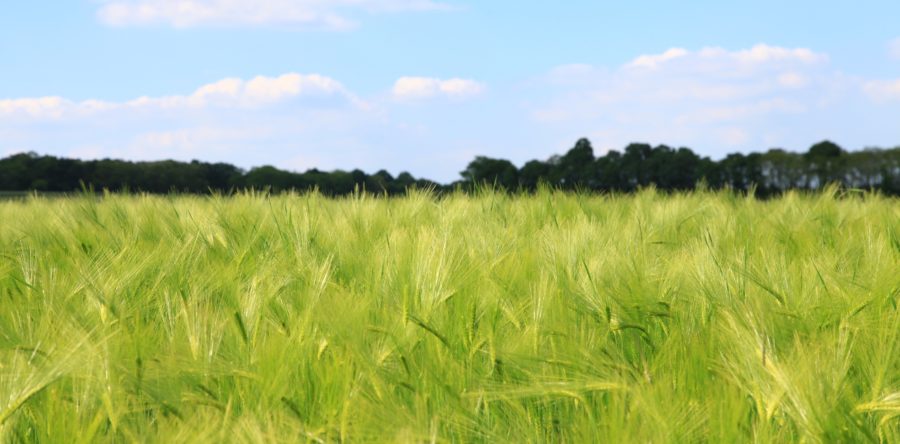Teff Flour Patent Controversy Settled: Dutchman Does Not Have Patent Right to the Ethiopian Food Staple
Teff is an Ethiopian ancient grain used to make injera, a spongy fermented flatbread that is a food staple of Ethiopian culture. In 2007, a Dutchman, Jans Roosjen, obtained two patents for teff flour. The Dutch District Court of The Hague recently invalidated those two patents in Ancientgrain BV v Bakels Senior NV, and Ethiopians are now celebrating the legal ruling.
What is Teff?
Teff is an annual grass native to Ethiopia and Eritrea. The grain is harvested and used extensively in Ethiopian foods such as injera, stews, and porridges. Ethiopians began domesticating their native grain more than 6,000 years ago. Teff is a staple in the Ethiopian diet, partially because it is a resilient crop that is resistant to both drought and waterlogging, and partially because it is a great source of fibre, protein, iron, calcium, and other minerals. The Ethiopian grain has gained increasing popularity outside of Ethiopia, in Western countries especially, as a gluten-free superfood.
The Controversy
Jans Roosjen, the owner of Dutch company Ancientgrain, embarked on creating an access and benefit-sharing agreement on teff genetic resources with the Ethiopian government. It began as a positive relationship that promised Ethiopia the ability to benefit from intellectual property rights and access to international markets for teff-based products. However, the relationship took a turn when the Dutch company filed for European patents in 2003 without involving Ethiopia. The company claimed patents over the storing and processing of teff grain – all of which is traditional knowledge of Ethiopian farmers. The teff patent was granted by the European Patent Office (EPO) in 2007 and filed under Jans Roosjen.
The teff patent excludes all other parties, including Ethiopia, from marketing and exporting teff to countries where the patent is granted. Additionally, the Ethiopian government had trouble claiming its benefits under the Teff Agreement because of the Dutch company’s decisions to transfer assets between companies and claim bankruptcy.
Since realizing they had gotten themselves into a bad deal, Ethiopia has been fighting to reclaim ownership over their traditional grain. In 2004, when the Dutch company was under the name of Soil & Crop Improvement, it was awarded “Most Outrageous” out of the Captain Hook Awards for Biopiracy.
The company appears to be oblivious to the fact that they are seeking to monopolize teff varieties that were developed over millennia by Ethiopian farmers and community plant breeders.
Coalition Against Biopiracy, at the 2004 Captain Hook Awards for Biopiracy
Ethiopia’s struggle to reclaim its rights to teff is yet another portrayal of the ongoing battles Indigenous peoples face in having their inherent rights recognized and respected. Teff is intrinsically a part of Ethiopian culture and the place and people it comes from. Ethiopians are born into their rights to teff in the same way that any person of a certain culture is born with inherent rights to practice their culture. It is morally outrageous that a Dutchman was filed as the “inventor” of teff flour, because it shows how legal systems founded upon Eurocentric values validate, and even encourage, acts of cultural appropriation. The teff patent controversy brings to light how Western notions of intellectual property rights, and the ways in which they are enforced and regulated, are continuously used to delegitimize traditional knowledge systems and the ownership rights tied to them.
Teff Patent Declared Invalid
What may seem even more outrageous is that Ancientgrain brought an action against another Dutch company selling teff products, Bakels, for patent infringement. However, the upside of this lawsuit is that it prompted the District Court of The Hague to rule that there was no patent infringement: the patents were invalid because they “lack inventiveness”. As a result, the teff patent is no longer enforceable in the Netherlands.
The outcome has been widely celebrated in Ethiopia. Ancientgrain, however, still holds patents over teff flour in the UK, Italy, Germany, Belgium, and Austria, all with an expiration year of 2024. It is possible that Bakels will challenge these patents in the other countries, in hopes of invalidating teff patents in their entirety, but this remains to be seen.
The Future of Teff
While the invalidation of these Dutch-owned teff patents is a win for Ethiopia, it still is far from what Ethiopia may need to secure its own intellectual property rights over teff flour. On its face, Ancientgrain BV v Bakels Senior NVis a dispute over whether teff flour can be patented. The decision to invalidate the Dutch patent falls short of being a positive declaration that Ethiopia has full ownership and control over the production and use of its native resource.






